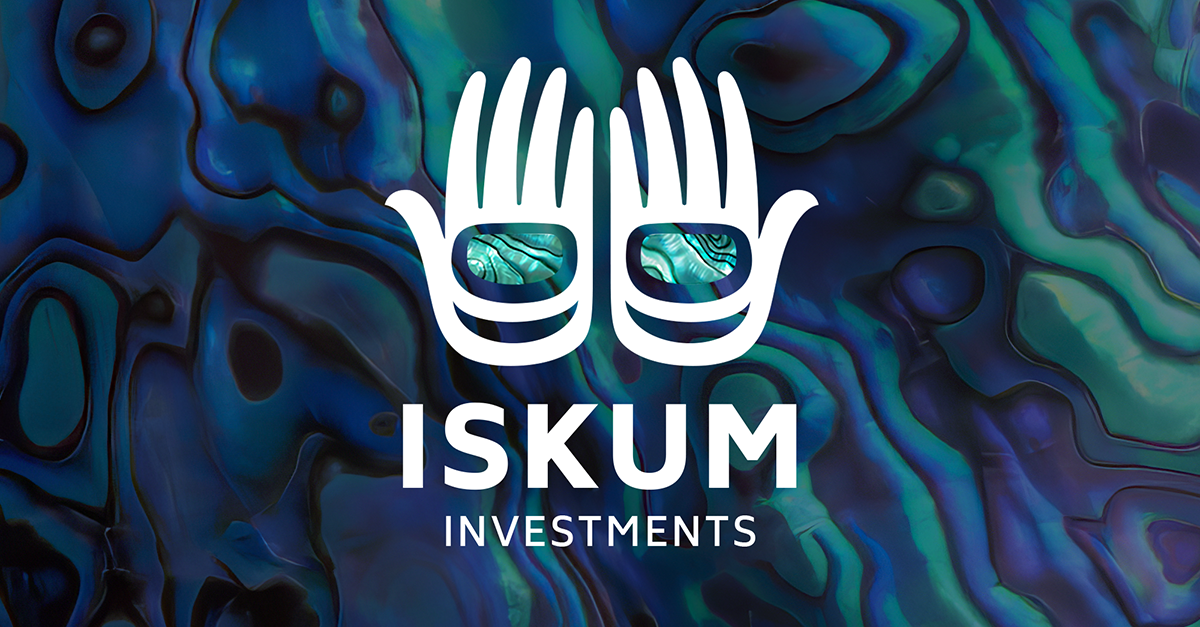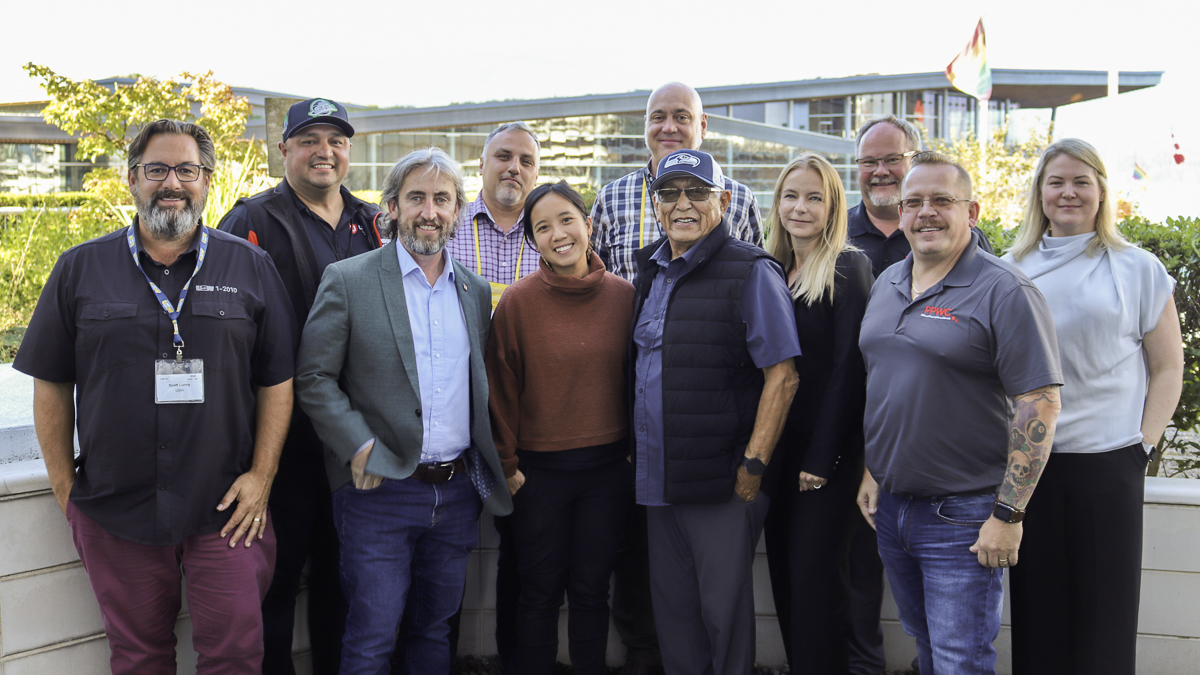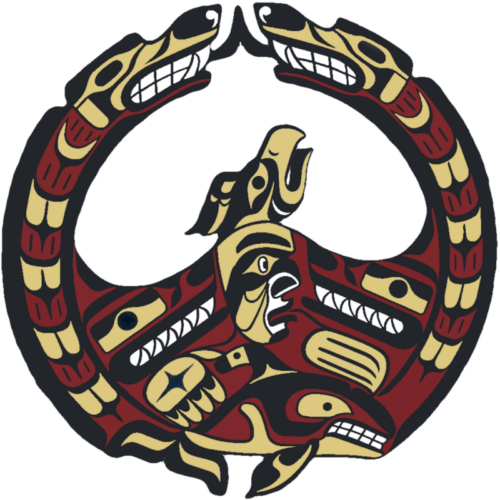Partnership of over 20 Nations to support forest industry revitalization and advance other business investment opportunities.
Southern B.C. Coast – April 2, 2024 – Iskum Investments (Iskum) is a Consortium of over 20 First Nations (the Consortium) from across Vancouver Island and the B.C. coast, that have come together in a unified modern business partnership to make economic reconciliation work for Nations, workers and communities.
Iskum’s focus is to meaningfully advance economic reconciliation and improve the B.C. business environment. By coming together as one, Iskum will pursue meaningful large scale business opportunities with a goal to deliver generational shared prosperity for everyone’s benefit.
“Iskum Investments is First Nations coming together to make economic reconciliation work for everyone,” said Emchayilk Robert Dennis Sr., Iskum Investments Chair. “For the past 150 years, we watched others decide what is best for our people, lands, waters, forests and resources. Today, we embark on a new path – First Nations, business, communities and governments working together to grow an inclusive economy – including good jobs and better managed forests – and to create value that stays in B.C., for the benefit of our Nations, our wider communities, British Columbians, and all Canadians.”
Iskum’s mandate is to explore economic opportunities that will create new self-generated revenues and support certainty for continued investment in B.C. Iskum’s leadership is made up of First Nations Chiefs and economic development experts with many decades of experience – a skilled, committed group focused on being meaningful participants in a sustainable economy and re-invigorating investment in coastal value-added, forest product manufacturing and beyond.
“Iskum Investments’ ground-breaking partnership aims to advance economic reconciliation – taking hold of our future and making our own decisions, to improve the lives of our Nations’ citizens and members now and for future generations,” said Hegus John Hackett, Chief, Tla’amin Nation / ɬəʔamɛn Nation. “We know that there are opportunities that can only be realized by working together through a unified voice with shared values. It is for these reasons that Iskum was formed.”
Iskum is collaborating to support First Nations’ decision-making authority, self-determination, and to advance economic independence – aligned with the implementation of the Government of Canada’s United Nations Declaration on the Rights of Indigenous Peoples Act (UNDRIP) and the Government of British Columbia’s Declaration on the Rights of Indigenous Peoples Act (DIRPA).
“A shared philosophy amongst many coastal First Nations is that Everything is Connected, or ‘hišuk ma c̕awak’ in my Nation’s Nuu-chah-nulth language,” said ʔu-ma-qak-takƛ Brandy Lauder, Chief Councillor, Hupacasath First Nation. “It is our responsibility to find balance between environmental stewardship and economic development. We know by working together to build on the initiative of our individual Nations, we can find the correct balance of these priorities.”
“As First Nations decision-makers and leaders, it is our responsibility to help find positive and productive solutions and be proactive in our efforts to solve the complex problems that society faces,” said waamiiš Ken Watts, Chief Councillor, Tseshaht First Nation. “Through the shared values of our Consortium, it is our goal to demonstrate how business can work with First Nations and facilitate this change with new ways of thinking. Our Nations have made a commitment to bring our paddles into the same canoe, together paddling as one as we move forward to exploratory opportunities.”
Iskum is currently seeking business opportunities with partners and leaders who recognise the need to step out of their comfort zone and think differently about our future.
“On behalf of its member Nations, Iskum is calling on the business world to support First Nations-led opportunities that both heal our lands and benefit the economy,” said Dallas Smith, President, Na̲nwak̲olas Council. “Through a Nation-to-Nation Protocol Agreement, Iskum’s member Nations have committed to working together to find solutions to support industry revitalization, recognizing the need to attract investment. It is our goal to continue to build on our successes as individual First Nations in managing and acquiring B.C. forest tenures, to also become meaningful and substantial participants in all aspects of the value-added sector.”
For more information on Iskum, its Consortium Nation members, principles and values, visit iskum.ca.
ADDITIONAL QUOTES
Ernie Daniels, President and CEO, First Nations Finance Authority (FNFA):
“This is exactly the type of partnership we support – to help First Nations realize priorities and future visions, and in First Nations-driven, responsible investments. Strongly aligned and committed partnerships like Iskum are what is needed to help fulfil Canada and B.C.’s economic reconciliation commitments to Indigenous communities, in a way that will benefit all Canadians.”
-30-
Download a PDF of the release here.
BACKGROUNDER
About Iskum Investments
Iskum means ‘to take hold of’ in the Chinook trade language of coastal Indigenous peoples. Prior to colonization, trade networks extended along the west coast of North America – throughout B.C., north to Alaska and south to California. These trade networks were made possible by waterways – including rivers, oceans and lakes – and the common language of trade, Chinook.
For a full list of our member nations, click here.
United Nations Declaration on the Rights of Indigenous Peoples Act (UNDRIP)
The United Nations Declaration on the Rights of Indigenous Peoples (UNDRIP) is about the respect and recognition of the human rights of Indigenous peoples.
On June 21, 2021, Canada officially adopted the United Nations Declaration on the Rights of Indigenous Peoples Act, which provides a roadmap for the Government of Canada and First Nations, Inuit and Métis to work together to implement the UN Declaration.
The Declaration is a framework for reconciliation, healing and peace, as well as harmonious and cooperative relations based on the principles of justice, democracy, respect for human rights, non-discrimination and good faith. References to “free, prior and informed consent” (FPIC) are found throughout the Declaration. They emphasize the importance of recognizing and upholding the rights of Indigenous peoples and ensuring that there is effective and meaningful participation of Indigenous peoples in decisions that affect them, their communities and territories.
On November 26, 2019, the Province of B.C. adopted the Declaration on the Rights of Indigenous Peoples Act (the Declaration Act) and on March 30, 2022, released its 2022-2027 Action Plan. The plan includes commitments to:
- Recognize Indigenous Peoples’ inherent rights, interests and legal orders;
- Support Indigenous students to lead graduation rates and pursue to their own excellence;
- Enable all Indigenous Peoples to live free from racism and discrimination;
- Share decision-making and pursue new fiscal relationships;
- Improve the health and well-being of Indigenous families; and
- End the epidemic of Indigenous children in government care.


